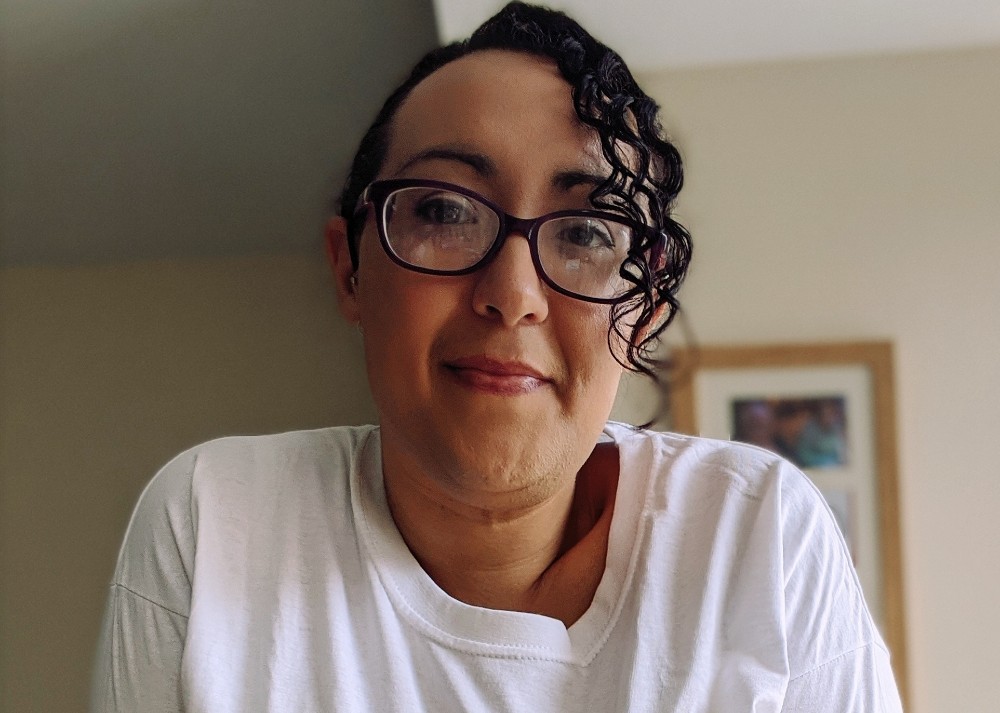Evie explains how the dinner table can lead to social isolation for deaf people and those with hearing loss – and the adjustments hearing people can make for friends and family this Christmas.

I was born hearing. I grew up the centre of attention, or at least battling my sister to be centre of attention. I am a very sociable person and love to be around friends and family, chatting, talking and generally putting the world to rights.
I started to lose my hearing as an adult. I had surgery on my ears as a child and I first noticed a drop in my hearing at around age 23. I was eventually told this was due to scar tissue on my eardrums. I was fitted with two behind-the-ear (BTE) hearing aids but all they did was make everything louder. I invested in private hearing aids which mimicked natural ears and at least attempted to filter sounds.
As my hearing loss developed, I found myself favouring 1-1 or small group interactions. I did so to avoid that drowning sensation of failing to follow a multitude of voices and sinking into isolation as you become further and further behind.
When out for tea one night with my better half, I realised I hadn’t ‘heard’ a word she’d said over the din of other diners, waiters, pots, glasses clinking and feet stomping.
Rather, I had lipread everything almost word-for-word. Suddenly, the excitement at the idea of being able to survive, even in crowded places, thrilled me. Little did I realise how draining or isolating it could still be.
Back then, I didn’t know that it’s a situation and feeling well known by the deaf community. It even has a name: ‘Dinner Table Syndrome’.
How I explain Dinner Table Syndrome to hearing people
Imagine you are sitting around the table with 10 people, all chatting about what they watched on TV the previous night. But instead of speech coming out of each mouth, each sentence is a separate text message bubble being released into the air.
As a lip-reader, in order to follow the conversation, not only do you have to read each bubble as it is released, but you have to work out which order to read them in, and read the facial expressions of each person to know the context of what they have said.
You’re always slightly behind, and it’s incredibly draining.
I’m lucky in that that my hearing aids give me a level of hearing that means I can follow in small groups, and especially in quiet surroundings – for instance, at my own dinner table. But I know there are deaf people for whom this is not the case, and for whom the festive period brings anxiety and social isolation.
My Christmas wish is for hearing people to ask their deaf friends and family two things:
- how best to make their dinner table deaf-friendly
- how to reduce social isolation for deaf people.
How to avoid Dinner Table Syndrome
- Make sure you have good lighting: to read lips, you need to be able to see them clearly.
- Ask the deaf person where they would prefer to sit: location is everything for following a conversation.
- Don’t brush them aside: if they ask you to repeat, repeat calmly and with the same intonation.
- Offer them a break: if they need to step away from the crowd, offer to keep them company on a one-to-one basis. They don’t necessarily want to be alone, but the exhaustion of following the conversation of many people can be overwhelming.
Christmas is going to be hard enough this year. Let’s work together to bring people together.